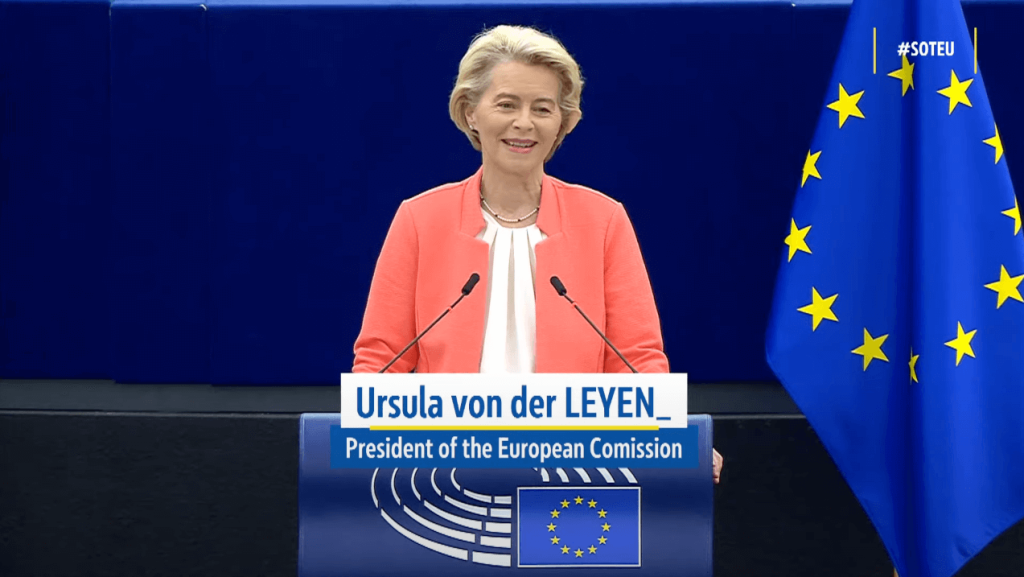2025 State of the Union: Tech sovereignty amid geopolitical pressure
The 2025 State of the Union address was framed by growing geopolitical tensions and by the push for a more self-reliant Europe.

The European Commission President, Ursula von der Leyen, delivered her 2025 State of the Union address to the European Parliament in Strasbourg. The speech set out priorities for the coming year and was framed by growing geopolitical tensions and the push for a more self-reliant Europe.
Von der Leyen highlighted that global dynamics have shifted.
‘Battlelines for a new world order based on power are being drawn right now, ’ she said.
In this context, Europe must take a more assertive role in defending its own security and advancing the technologies that will underpin its economic future. The President characterised this moment as a turning point for European independence.
Digital policy appeared less prominently than expected in the address. Von der Leyen often referred to ‘technology sovereignty’ to encompass not only digital technologies, but also other types of technologies necessary for the green transition and to achieve energetic autonomy. In spite of that, some specific references to digital policy are worth highlighting.
- Europe’s right to regulate. Von der Leyen defended Europe’s right to set its own standards and regulations. The assertion came right after her defence of the US-EU trade deal, making it a direct response to the mounting pressure and tariff threats from the US President Donald Trump’s administration.
- Regulatory simplification. A specific regulatory package (omnibus) on digital was promised, under inspiration from the Draghi report on EU competitiveness.
- Investment in digital technology. Startups in key areas, such as quantum and AI, could receive particular attention, in order to enhance the availability of European capital and strengthen European sovereignty in these areas. According to her, the Commission ‘will partner with private investors on a multi-billion euro Scaleup Europe Fund’. No concrete figures were provided, however.
- Artificial intelligence as key to European independence. In order to support this sector, von der Leyen highlighted the importance of some initiatives, such as the Cloud and AI Development Act, and the European AI Gigafactories. She praised the commitment of CEOs from some leading European companies to invest in digital in the recently launched AI and Tech Declaration.
- Mainstreaming information integrity. According to von der Leyen, Europe’s democracy is under attack, with the rise of information manipulation and disinformation. She proposed to create a new European Centre for Democratic Resilience, which will bring together all the expertise and capacity across member states and neighbouring countries. A new Media Resilience Programme aimed at supporting independent journalism and media literacy was also announced.
- Limits to the use of social media by young people. The President of the Commission raised concerns about the impact of social media on children’s mental health and safety. She committed to convening a panel of experts to consider restrictions for social media access, referencing efforts that have been put in place in Australia.
Would you like to learn more about AI, tech and digital diplomacy? If so, ask our Diplo chatbot!
